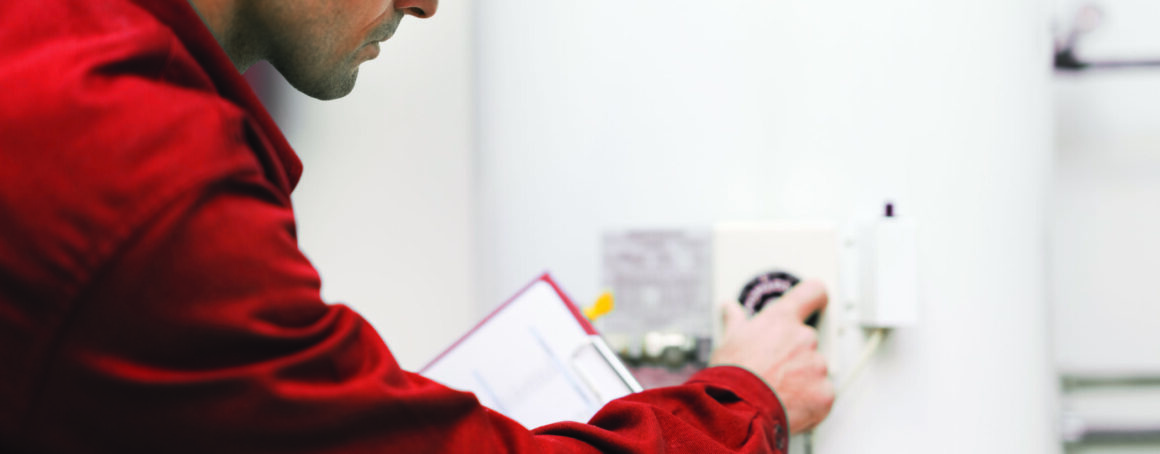Propane Appliance & Equipment Maintenance

Propane appliances and equipment require special care and maintenance to ensure safe and functional operation. Read the following information from The Propane Education and Research Council (PERC) to learn how to safely maintain your propane appliances.
Safe Use Requires Proper Maintenance
Proper maintenance is important. All equipment using propane must be maintained in order to operate safely, properly, and efficiently.
Leave Maintenance to the Experts
Only qualified professionals have the proper training to install, service, maintain, and repair propane equipment or appliances.
Annual Inspections
Contact a qualified professional to perform an annual inspection or more often if the appliance or equipment manufacturer requires it.
Ensure Your Equipment Can Breathe Properly
Regularly check the vents of propane appliances or equipment to be sure flue gases or exhaust can flow easily to the outdoors.
Remember, snow and ice can also clog vents.
NEVER store combustible materials near propane-powered appliances or equipment.
Watch for Yellow Flames
On some propane equipment, you’ll be able to see the flames. When operating properly, propane burns with a blue flame. If you see yellow flames or notice significant amounts of soot on any propane equipment, the gas may not be burning completely, and could be creating higher levels of carbon monoxide. Contact a qualified professional if you notice any of these conditions.
Propane Connectors
It’s crucial that propane connectors — the final section of the system that brings propane gas to an appliance or equipment —are properly installed and maintained. If a connector is damaged, deteriorated, or exposed to fire, it must be replaced by a qualified professional.
Inspect Connectors
If you have equipment or appliances, have a qualified professional inspect the connectors to be sure they are safe and meet applicable safety code standards.
Replacing Connectors
Have new connectors installed when propane-powered equipment or appliances are moved. Do not reuse a gas connector or the fittings on another appliance, or on the same appliance if it is moved to a new location.
Use only approved connectors. Ensure that all connectors and gas piping/tubing that brings propane to appliances or propane equipment are installed by a qualified professional and approved by the American National Standards Institute (ANSI).
- Be cautious when moving an appliance. This could damage the connector and cause a serious gas leak.
- Appliances that are installed on wheels or casters must have an installed safety cable, block, or chain that restricts movement a distance greater than the length of the appliance connector.
Connectors & New Equipment
If equipment is going to be powered by propane, be sure that it’s designed for use with propane. Natural gas appliances or equipment SHOULD NOT be used with propane unless a qualified professional has made required adjustments to them. Be sure the connector is properly installed, and that all controls and valves operate correctly.
Do Not Tamper With Propane Equipment
DO NOT try to install, modify, or repair valves, regulators, connectors, controls, or other equipment and cylinder/container parts. Doing so creates the risk of a gas leak that could result in serious injury or death. Call an expert if you are unable to operate any part of your
propane system, or if you think an appliance or piece of equipment is not operating properly. They can inspect, adjust, repair, or replace the appropriate parts.
Designed for Safety
Your propane system is designed for maximum safety. Propane cylinders, containers, appliances, and equipment incorporate special components — valves, connectors, controls, burners, and pilot lights — to keep them safe for use. Damaging these components can cause dangerous gas leaks.
Gas Piping
If an appliance is disconnected from a gas piping system for any period of time, or if a gas piping system is taken apart, the open gas line or gas valve must be immediately capped or plugged to prevent propane from escaping.
To learn more about the proper maintenance of propane appliances, please visit Propane Safety for Commercial and Industrial Users | PERC.
"*" indicates required fields


